Middle East
How Israel’s ‘plan’ for Gaza could turbocharge ethnic cleansing | Israel-Palestine conflict News
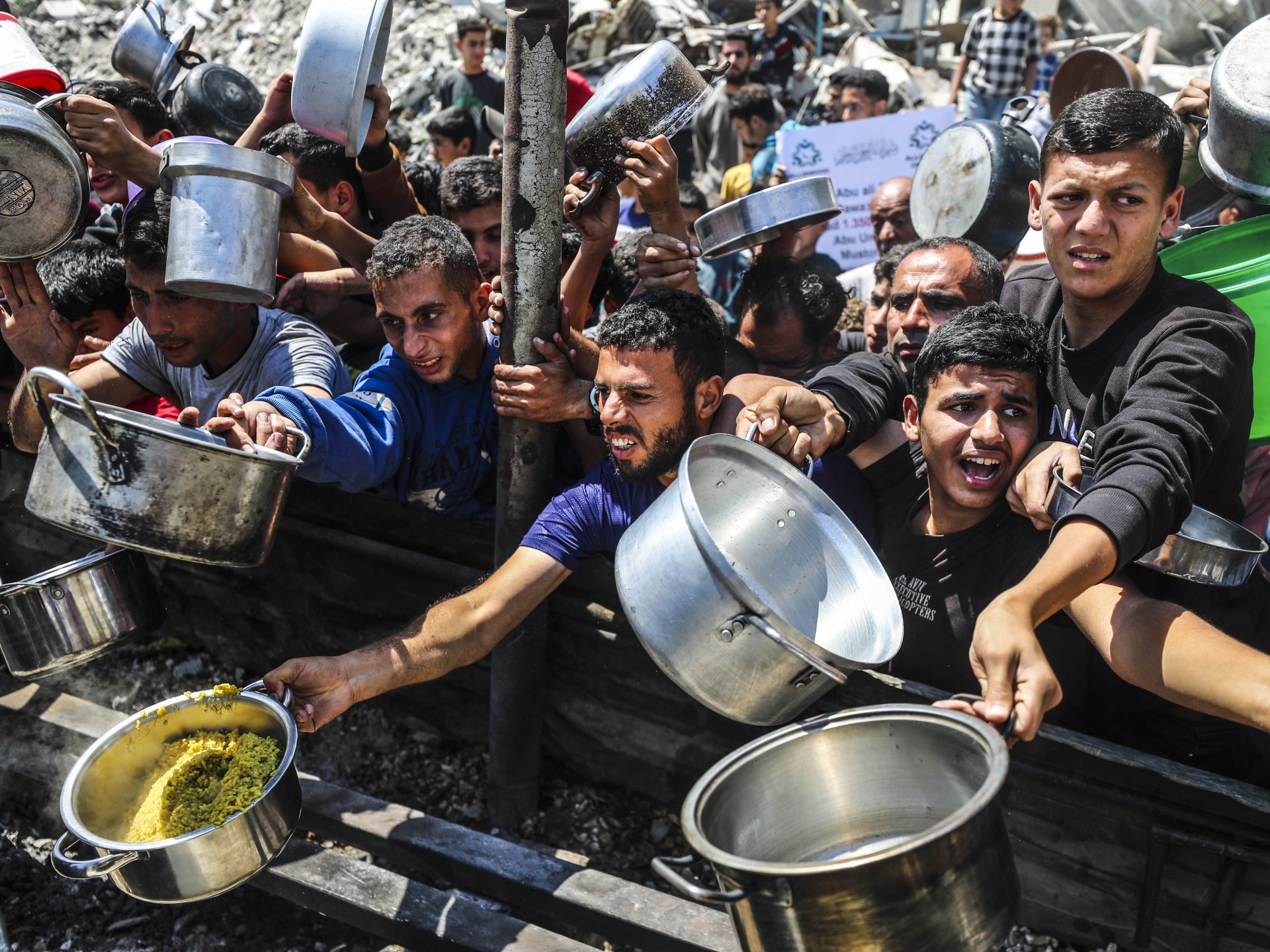
Israel’s far-right government has approved a “plan” to carve up and ethnically cleanse Gaza, analysts told Al Jazeera.
Israeli Prime Minister Benjamin Netanyahu announced the plan, couching it in claims that its goal is to dismantle Hamas and retrieve the 24 or so living captives taken from Israel on October 7, 2023.
Asserting that the “powerful operation in Gaza” was necessary, he went on to emphasise that “there will be a movement of the population to protect it.”
Here’s what you need to know:
What is this ‘plan’?
Israel will expel hundreds of thousands of hungry Palestinians from the north of Gaza and confine them in six encampments.
It says food will be provided to the Palestinians in these encampments, and that it will allow aid groups and private security contractors to distribute it. Palestinians will be forced to move – or starve.
Some 5,000 to 6,000 families will be pushed into each camp, according to The Washington Post. Each household will send someone to trek miles to pick up a weekly food parcel from what the Norwegian Refugee Council’s Jan Egeland called “concentration hubs”.
It is unclear how the rest of the population – possibly some 1.5 million people – will eat.
Israel says it will use facial recognition to identify people picking up food parcels, to deny aid to “Hamas” – yet Israel treats every fighting-age male as a Hamas operative.
The private security companies from the United States would also guard within the designated areas.
Experts and UN agencies are decrying the plan as impractical and inhumane.
What does this mean for the people of Gaza?
Israel’s genocidal war on Gaza continues, and Palestinians will continue to suffer.
Since Israel began its war on Gaza on October 7, 2023, it has cloaked its mass expulsions in what it claims are humane “advance warnings” in which families have mere hours to pack their belongings and flee to a zone Israel determines. Israel often bombs those safe zones anyway.
“If you are viewing this plan through aid distribution, it makes no sense,” Diana Buttu, legal scholar and former adviser to the Palestine Liberation Organization, told Al Jazeera.

“If you view it through a political project, which is ethnic cleansing and cantonisation by using food as a weapon of war, then this plan does make sense,” she said, adding that the “plan” is consistent with Israel’s aim of carrying out a genocide in Gaza.
What did the people of Gaza say?
That they are afraid, and starving, after two months of Israel blocking all aid and regular shipments of food.
“If there is a plan to expand the war and reoccupy Gaza and repeat the displacement, why were we allowed to return to the north again?” Noor Ayash, 31, asks.
“What more does Netanyahu want? We’re dying in every way.”
Mahmoud al-Nabahin, 77, who has been displaced for the past 18 months, says Netanyahu’s threats are meaningless.
He has lost everything; Israel killed his wife and daughter in a raid months ago, and their home and farm are gone.
“[This] means nothing but our annihilation. We’ve lost all hope. Let him do whatever he wants,” he says from his tent in Deir el-Balah.
“We don’t have weapons. We’re civilians left in the wind. People will refuse displacement, but will be forced by the army.”
What does Israel want?
They want to finish their genocide under the guise of facilitating food aid and rescuing Israeli captives, Omar Rahman, an expert on Israel-Palestine for the Middle East Council on Global Affairs, said.
“Israel has been telegraphing its real intentions from the start of this campaign: Destroy Gaza and eliminate its population both by starvation and mass killing,” he said.
Israel’s “plan” signals its intent to starve Palestinians who resist being expelled from north Gaza, said Heidi Matthews, a legal scholar at York University, Canada.
“It is inconceivable that the population can be adequately provided for … whilst being crowded into southern Gaza,” she said.
“This indicates the genocidal intent to inflict on the Palestinian population of Gaza conditions of life calculated to bring about its physical destruction in whole or in part.”
Can Israel even manage this?
Not clear.
Israel plans to hire two US private security firms, Safe Reach Solutions and UG Solutions, to provide security and possibly help with food distribution.
The first is headed by Phil Riley, a former CIA intelligence officer. The second is run by Jameson Govoni, a former member of the US Army Special Forces.
These companies could give Israel plausible deniability if abuses or atrocities occur, said Mairav Zonszein, an expert on Israel-Palestine for the International Crisis Group.

She added that Israel will also call up thousands of reservists to maintain a physical occupation over northern Gaza, despite many soldiers being fatigued by war and financial troubles.
“There is definitely a lower … turnout among reservists than at the start of the war. But that doesn’t mean there is actually a manpower shortage,” Zonszein told Al Jazeera.
In addition, she noted, despite Israeli society opposing expanding the war on Gaza without first retrieving the captives, Netanyahu is more concerned with appeasing far-right ministers in his coalition by fighting on.
Netanyahu risks losing power and standing trial for corruption charges if the coalition collapses.
Are aid agencies on board?
Not UN agencies.
A UN spokesman said Secretary-General Antonio Guterres was “alarmed” by Israel’s plan and that it will “inevitably lead to countless more civilians killed and the further destruction of Gaza”.
“Gaza is, and must remain, an integral part of a future Palestinian state,” said spokesman Farhan Haq.
The UN also issued a statement saying Israel’s plan for Gaza would “contravene fundamental humanitarian principles” and deepen suffering for civilians.
But the UN may conclude that it must participate in Israel’s scheme out of fear that even more Palestinians in Gaza will starve if it doesn’t, said Buttu, putting the onus on Western states, who primarily fund UN agencies, to support the UN’s position by sanctioning Israel.
Middle East
Hamas says it will release US-Israeli captive Edan Alexander | Israel-Palestine conflict News
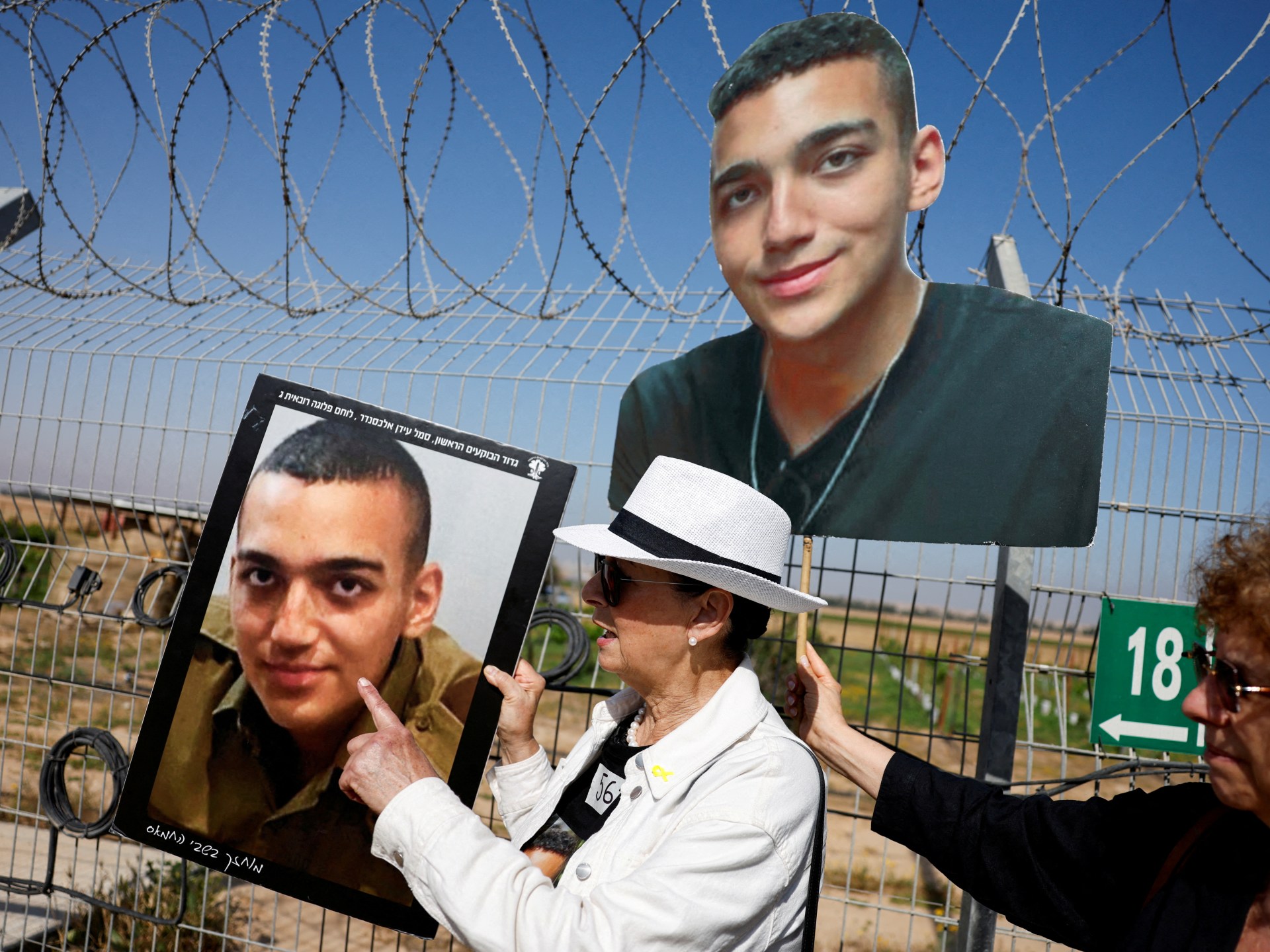
Hamas has said it will release a US-Israeli captive held in Gaza, as the group confirmed it was engaged in direct talks with the United States towards securing a ceasefire in the war-ravaged enclave and getting aid flowing again to a suffering Palestinian population.
The Palestinian group released a statement on Sunday: “Israeli soldier Edan Alexander, a dual US national, will be released as part of efforts towards a ceasefire” and the reopening of aid crossings. Israel has blocked all aid, including food, medicine and fuel, for 70 days.
The Hamas statement did not indicate when the 21-year-old Alexander would be released, but it is thought to be in the coming 48 hours.
Israeli media reported that US envoy Steve Witkoff will be in Israel on Monday as part of the deal.
The announcement comes shortly before US President Donald Trump’s visit to the Middle East this week – which does not include a trip to Israel. Trump and Witkoff have frequently mentioned Alexander by name in the past few months.
Alexander, who grew up in the US, was taken from his military base during the October 7, 2023 Hamas-led attack.
In its statement on Sunday, Hamas said it was willing to “immediately begin intensive negotiations” that could lead to an agreement to end the war and would see Gaza under a technocratic and independent administration.
“This will ensure calm and stability for many years, along with reconstruction and the end of the blockade,” the group said.
There was no immediate comment from the Trump administration.
Israeli Prime Minister Benjamin Netanyahu’s office said on Sunday that the US told Israel that Hamas’s freeing of Alexander would lead to negotiations for the release of more captives. The statement added that Israel’s policy hasn’t changed: negotiations will be conducted under fire with a continued commitment to achieving all war objectives.
‘A lot of questions’
Al Jazeera’s Hamdah Salhut, reporting from Amman, Jordan, said: “It’s unclear exactly what kind of reaction the Israeli government officials had with these direct talks between Hamas and the United States, but last time they were quite angry and that’s because the Israelis weren’t involved and had no knowledge of those talks and the Americans hit back by saying they didn’t need anyone’s permission to negotiate with any of the actors involved because they were American captives held in Gaza”.
“There are a lot of questions from a lot of different angles, specifically from the family members of those captives, from the larger part of Israeli society who have been protesting in the thousands for more than 1.5 years, accusing Benjamin Netanyahu of prolonging the war for his own personal and political gain. And in fact, Israeli officials have been saying the quiet part out loud in recent weeks, saying that the captives were not the main priority for the Israeli government and that they had other goals and objectives they needed to achieve”, she added.
“The family members of captives say that the Israeli government is choosing land grabs over the lives of Israelis who are still being held in Gaza”, she continued, referring to the Israeli government’s decision to expand its offensive in Gaza with a view to reoccupying parts of the territory.
Talks ongoing in Doha
Earlier on Sunday, two Hamas officials told the AFP news agency that talks were ongoing in the Qatari capital of Doha with the US and reported “progress” had been made.
One Hamas official, speaking about the talks with the US, said there was “progress made … notably on the entry of aid to the Gaza Strip” and the potential exchange of captives for Palestinian prisoners in Israeli custody.
A second official also reported progress “on the ceasefire in the Gaza Strip”.
Israel shattered the last ceasefire, which lasted two months, on March 18, launching a major offensive in Gaza and ramping up its bombardment of the territory.
It has also cut off all aid to Gaza since March 2, saying it would pressure Hamas to release the remaining captives. None have been released since the fleeting truce earlier this year, when several captives were exchanged for Palestinian prisoners.
A total of 59 captives are still in Gaza, around a third of them believed to be alive, after most of the rest were released in ceasefire agreements or other deals.
Starvation has taken hold across Gaza due to the Israeli blockade.
Earlier this month, the Israeli government approved plans to expand its offensive in the Gaza Strip, with officials talking of retaining a long-term occupying presence there.
The Health Ministry in Gaza said on Sunday that at least 2,720 people have been killed since Israel resumed its assault, bringing the overall Palestinian death toll since the war broke out to 52,829.
Middle East
Israel attacks Yemen’s Hodeidah, striking port areas | News
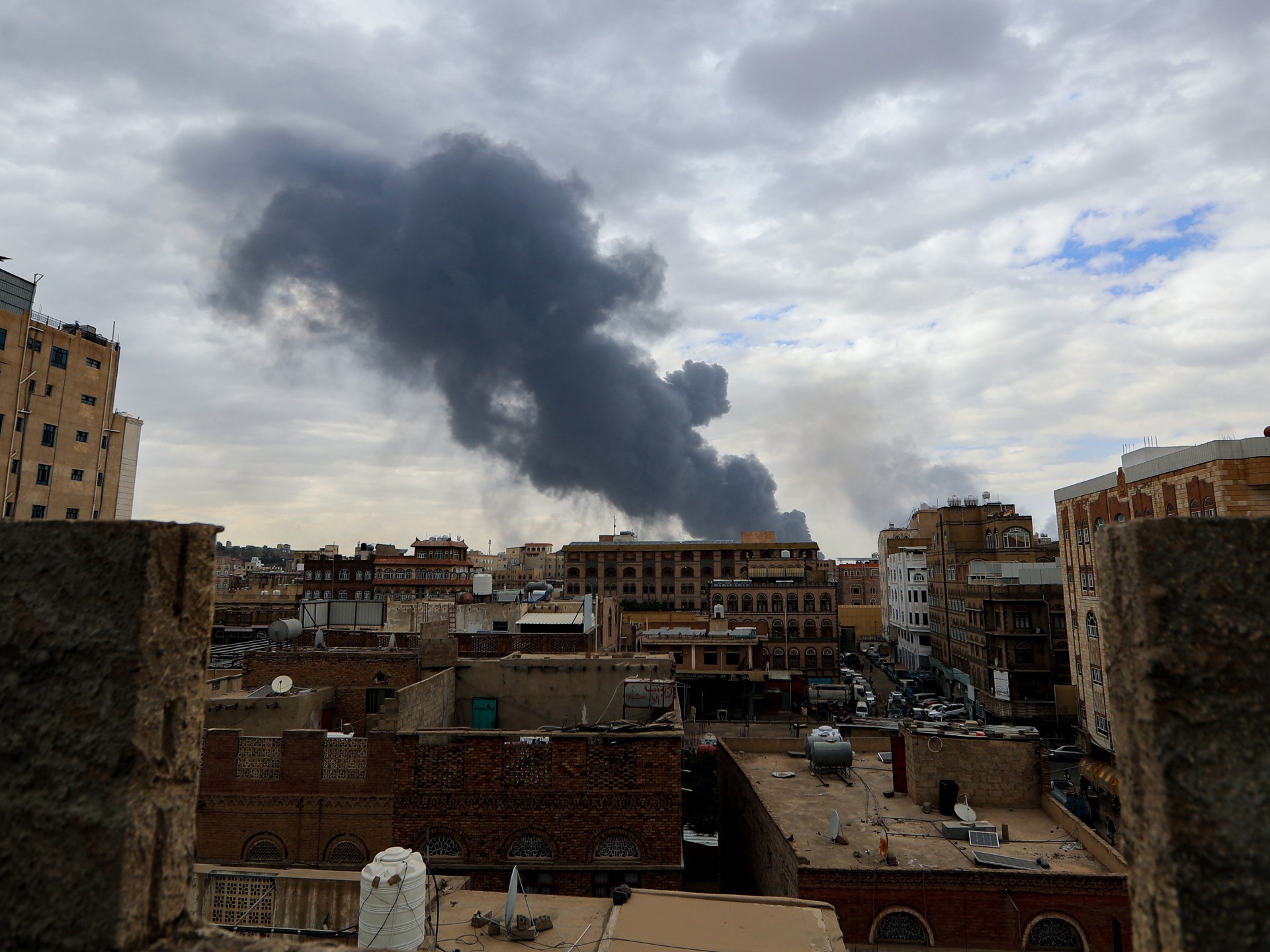
Israel has previously bombed Hodeidah and Sanaa International Airport; Houthi missile targeted Ben Gurion Airport in Tel Aviv.
Israel has launched air attacks on Yemen’s Hodeidah governorate, according to the Houthi Interior Ministry.
The attack late on Sunday came after the Israeli army said it had warned those present at three Houthi-controlled ports in the area to evacuate.
It was the latest salvo in exchanges between Israel and the Houthis.
Israel bombed the Hodeidah port after a Houthi attack near Ben Gurion Airport in Tel Aviv earlier this month.
Israeli strikes have also targeted parts of the Yemeni capital Sanaa and the main international airport there.
The Houthis have been firing missiles at Israel and on Israeli targets in the Red Sea in solidarity with Palestinians under fire since the war on Gaza began 19 months ago. Israeli attacks on Gaza have killed more than 52,000 people, including 57 who starved to death due to the total Israeli siege since March 2, according to Palestinian officials.
A ceasefire deal between Yemen’s Houthis and the United States does not include any operations against Israel, the group’s chief negotiator announced earlier this week. The Houthis stopped firing on Israel during the Gaza ceasefire earlier this year, but resumed when Israel imposed its punishing blockade and then resumed the war soon after.
The US military had been launching daily air strikes across Yemen for nearly two months, destroying infrastructure and killing dozens of people, including children and civilians.
Middle East
Israel kills 13, including children, amid dire humanitarian crisis in Gaza | Israel-Palestine conflict News
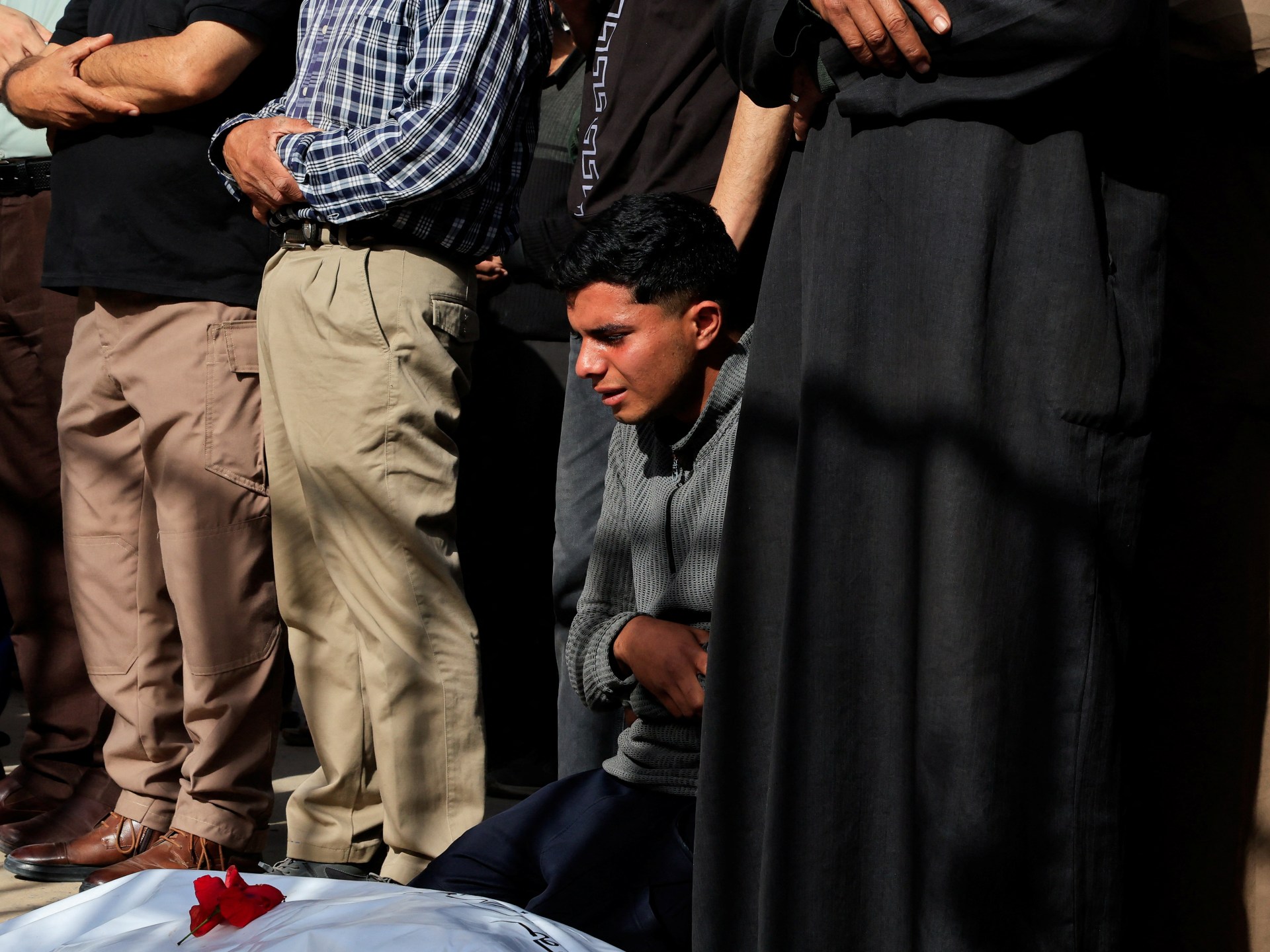
The Israeli military has killed at least 13 Palestinians, including several children and women, in Gaza as it continues to starve the besieged enclave.
Among the victims since dawn on Sunday were three Palestinians killed in a drone strike on a vehicle and two killed in a bombing near residential towers located west of Khan Younis in southern Gaza.
Another two people were killed in artillery shelling of a home in the Zeitoun neighbourhood of Gaza City in the north while the body of a man was recovered near the Bureij refugee camp in central Gaza after Israeli warplanes bombed the area a day earlier.
The Israeli military also attacked the Islamic University building in Khan Younis.
فيديو يوثق لحظة قصف الاحتلال الجامعة الإسلامية في منطقة معن شرقي خانيونس جنوبي قطاع غزة. pic.twitter.com/1G8rFhF7Ch
— شبكة قدس الإخبارية (@qudsn) May 11, 2025
The latest killings in the daily Israeli bombardment of Gaza came as the enclave has seen no food, water, medicine or fuel enter the territory for 70 days due to Israel’s blockade.
The 2.3 million residents of Gaza are surviving on fast-dwindling supplies and charity kitchens, which have been gradually forced to shut down as they run out of food and hunger spreads.
The United Nations agency for Palestinian refugees (UNRWA) warned on Sunday that the longer the blockade continues, the more irreversible harm is being done to Palestinians.
“UNRWA has thousands of trucks ready to enter and our teams in Gaza are ready to scale up the delivery,” the organisation said.
Hamas said in a statement on Sunday that Israel is committing a “complex crime”.
Israel’s security cabinet this month approved a plan to fully occupy the Gaza Strip and force another mass displacement of Palestinians.
Israel has also proposed taking over any future humanitarian aid distribution, which would, it said, involve creating designated military zones.
The Humanitarian Country Team, a forum that includes UN agencies, warned that the plan is dangerous and would “contravene fundamental humanitarian principles and appears designed to reinforce control over life-sustaining items as a pressure tactic – as part of a military strategy”.
Israeli Foreign Minister Gideon Saar said on Sunday that the country would accept a new US mechanism that would start delivering humanitarian aid to Gaza.
A group of American security contractors, former military officers and humanitarian aid officials is proposing to take over the distribution of food and other supplies in Gaza based on plans similar to those designed by Israel.
The plan has been criticised for bypassing the UN and aid groups with expertise in aid delivery and creating only four distribution points that would force a large number of Palestinians to travel to southern Gaza.
According to the latest figures by Gaza’s Ministry of Health on Sunday, at least 52,829 Palestinians have been confirmed killed and 119,554 wounded by Israeli military attacks since the Hamas-led October 7, 2023, attacks on southern Israel, which killed an estimated 1,139 people and resulted in more than 200 people taken captive into Gaza.
Pope Leo XIV called for an immediate ceasefire, entry of humanitarian aid and release of all those held in Gaza during his first Sunday blessing since his election as pontiff.
Israel to pay soldiers more before Gaza expansion
The Israeli military planned to intensify its ground occupation of Gaza on Sunday, pulling the Paratroopers Brigade back from its incursions into Syria to be redeployed to Gaza.
The paratroopers have been operating in the occupied Golan Heights and inside Syria since the fall of President Bashar al-Assad in December.
Israel withdrew the Nahal Brigade from the occupied West Bank – which has also been under assault for months – in its intended and self-proclaimed push to “conquer” Gaza.
But thousands of Israeli reservists and other members of the Israeli military and security agencies, along with thousands of Israelis demonstrating in the streets, have been calling for an end to the war to bring back all captives.
To address the growing dissatisfaction among soldiers, the Israeli government on Sunday approved a “comprehensive benefit plan” for reservists worth about 3 billion shekels ($838m) that is slated to include a series of economic and social benefits.
The army welcomed the plan approved by Prime Minister Benjamin Netanyahu, saying in a statement that it is a reflection of soldiers’ “exceptional contribution” to Israeli society.
This comes as United States President Donald Trump, who has reportedly had some differences with Netanyahu in recent weeks over the Gaza war and how to engage with Iran, will launch a tour of the Middle East this week.
-

 Middle East2 days ago
Middle East2 days agoIraq look to former Australia coach Arnold to boost 2026 World Cup hopes | Football News
-
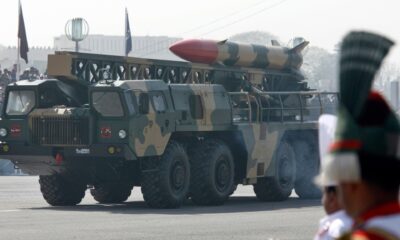
 Conflict Zones2 days ago
Conflict Zones2 days agoCould India, Pakistan use nuclear weapons? Here’s what their doctrines say | India-Pakistan Tensions News
-

 Europe2 days ago
Europe2 days agoEuropean leaders arrive in Kyiv in show of support for Ukraine
-

 Europe2 days ago
Europe2 days agoRare medieval manuscript virtually unwrapped to reveal hidden details
-

 Education2 days ago
Education2 days agoTrump’s dismantling of Education Department gives states ‘green light’ to pursue voucher programs
-

 Sports2 days ago
Sports2 days agoTimberwolves searching for fan accused of ‘racially charged comments’ toward Draymond Green and say another fan was ejected
-
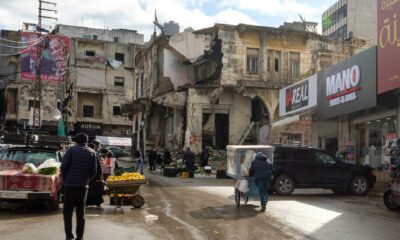
 Middle East2 days ago
Middle East2 days agoAfter Israel’s bombs, Nabatieh’s Monday Market revives itself once again | Israel attacks Lebanon
-

 Conflict Zones2 days ago
Conflict Zones2 days agoPakistan launches Operation Bunyan Marsoos: What we know so far | India-Pakistan Tensions News




